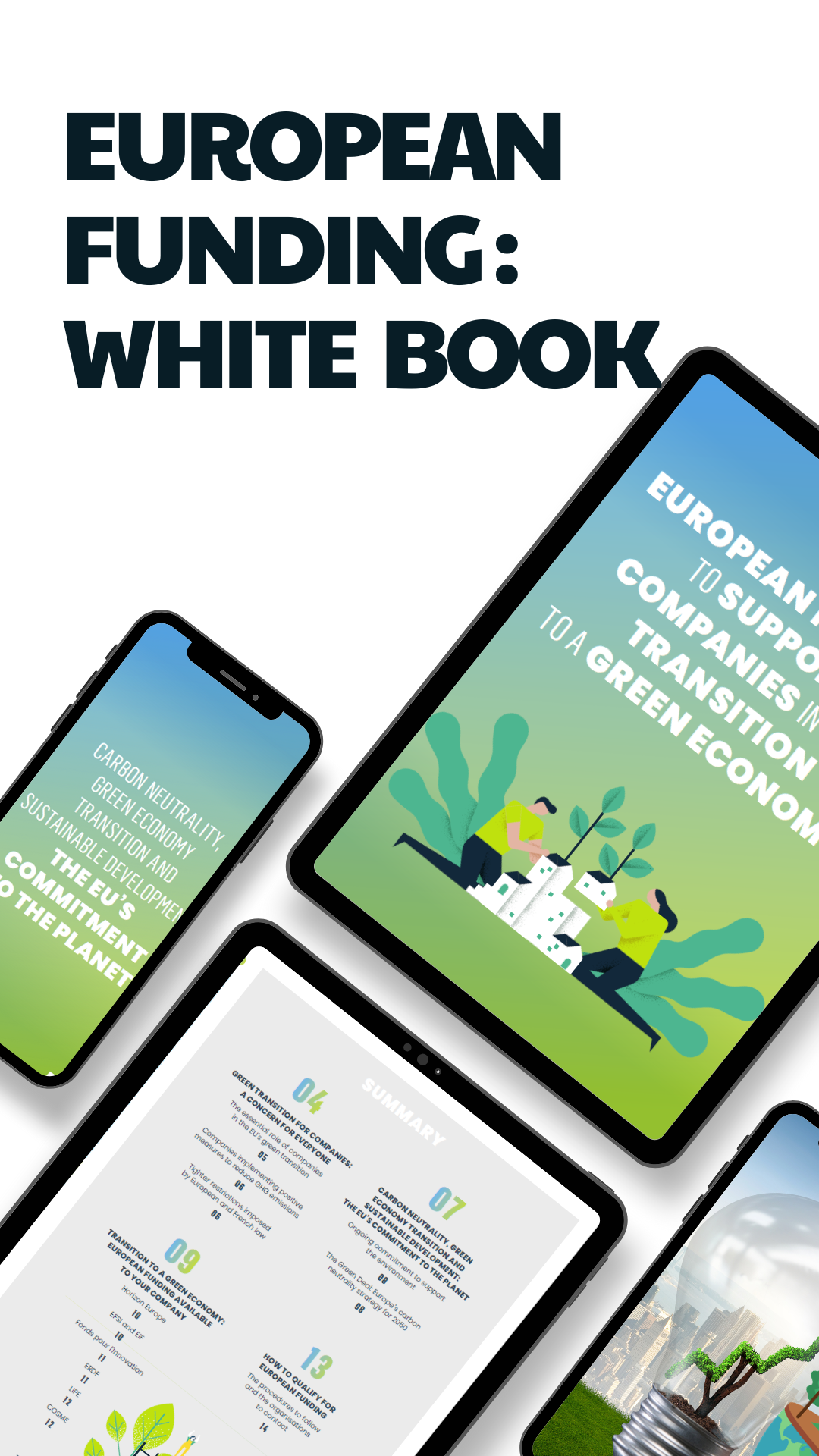In 2018, France produced over 340 million tonnes of waste. A figure with serious consequences in terms of resource depletion and greenhouse gas emissions.
As the ecological emergency becomes ever more pressing, legislation on eco-responsibility continues to develop, encouraging companies and industries to rethink the way they consume and produce.
Among them, the AGEC law aims to move from a linear economy (produce, consume, throw away) to a circular economy by 2040. It sets ambitious targets for waste management and encourages eco-design.
An update.
Three years of the anti-waste law
Enacted on February 10, 2020, the anti-waste law for a circular economy, or Loi AGEC, implements a national strategy for reduction, reuse and recycling, also known as the 3R strategy. It encourages us to rethink our production models, in particular by encouraging manufacturers to anticipate the end-of-life of the products they put on the market. The strategy is based on five key points.
1 – Moving away from disposable plastic
First and foremost, the AGEC law aims to put an end to the marketing of single-use plastics by 2040. The ban on certain single-use plastic products has therefore been progressively introduced. This applies to plates, cups, straws, cutlery and cotton buds, but also, more recently, to plastic packaging around fruit and vegetables that can be sold in bulk.
2- Better informing consumers
The transition to a circular economy also requires a change in consumer behavior. A change that relies in particular on better information for consumers, who will then be able to switch to more sustainable products or sort better.
The AGEC law therefore requires the display of a reparability index on certain products such as smartphones, laptops, washing machines, lawnmowers, televisions, dishwashers or vacuum cleaners, the environmental characteristics of a product and information on products containing endocrine disruptors.
The Triman logo is now compulsory on EPR recyclable products, and the collection of plastic packaging in the yellow bin is becoming more widespread.
3- Combating waste and promoting solidarity-based re-use
As of January 1, 2022, the French anti-waste law prohibits the disposal of unsold non-food products. Companies are now required to recycle or donate unsold goods to associations. Food waste, for its part, must be reduced by 50% compared to 2015 and by 2025, particularly in the distribution and catering sectors.
4- Take action against programmed obsolescence
In France, 40 million goods break down and are eventually disposed of. The cause? Appliances that cannot be repaired, and whose obsolescence is often programmed. In order to reduce the extraction of raw materials and the production of waste, while improving consumer purchasing power, the AGEC law aims to extend the lifespan of products.
In particular, this means encouraging repair and reuse. With this in mind, the AGEC law requires the display of a reparability index for electronic and electrical equipment. At the same time, on December 15, 2022, it launched the “bonus réparation” (repair bonus): consumers can benefit from a flat-rate reduction in the price of repairs by visiting labeled repair outlets.
5- Better production
The AGEC law strengthens extended producer responsibility (EPR) by requiring producers to finance the collection, treatment and recovery of waste from their products, via eco-organizations.
To the dozen or so existing EPR channels (pharmaceuticals, electrical and electronic equipment, textiles, etc.), we have recently added tobacco products, toys, sports and leisure goods, DIY and garden equipment, building materials and lubricants.
These products are collected by eco-organizations at in-store kiosks for repair and reconditioning, thanks in particular to funds for re-use.
Looking to the future: new measures underway and to come
At the start of 2023, a number of measures have been added to the previous ones:
- From January 1, 2023, the anti-waste law prohibits fast-food establishments (fast-food outlets, community and school restaurants, etc.) serving more than 20 covers simultaneously from using disposable crockery for meals consumed on the premises. This measure would avoid the production of almost 200,000 tonnes of waste every year.
- Decree no. 2023-162 of March 7, 2023 extends EPR to catering packaging. This will in turn apply to chewing gum and sanitary textiles (by the end of 2024), fishery products, technical acids and industrial and commercial packaging (by the end of 2025).
- Since April 1, 2023, cash register receipts have been printed on demand for small, everyday purchases.
In the near future, the reparability index for electronic products will become the sustainability index. From 2024, it will take into account not only ease of repair, but also robustness, reliability and upgradability. The first products to be affected will be smartphones, televisions and washing machines.
By the end of 2025, single-use plastic packaging will also have to be reduced by 20%, and non-recyclable plastic packaging completely banned in favor of recycled plastic packaging.
The law also envisages support for virtuous companies that manufacture sustainable textiles, notably from recycled materials. By January 1, 2025, washing machines will have to be fitted with plastic microfiber filters to protect the oceans from microplastic discharges. The recovery of biowaste into biogas will also become widespread.
Finally, bonus-malus schemes on the contributions they pay to their eco-organization will encourage manufacturers to eco-design and make their products more durable and recyclable.
AGEC Act: companies and industries must now initiate and anticipate change
The AGEC Act aims to put an end to all forms of waste in order to preserve resources and reduce greenhouse gas emissions. It is not the culmination of a public policy on the circular economy, but its beginning.
For companies and industries, this means that profound changes in their consumption and production patterns must be undertaken to meet current and future requirements, particularly with regard to responsible and sustainable waste management, but also to remain competitive in the marketplace.
The company of the future will therefore give priority to eco-design.




